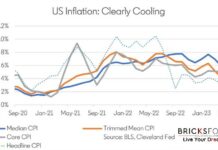If you are a real estate investor, agent, or homeowner, you have probably wondered how the new tax plan is going to affect you? Big changes to the tax plan mean lots to learn and understand the impact of these changes in the coming months when it comes to buying, selling, and investing in real estate. And while it will still take some time to see exactly how these changes will affect you as an individual, we have done some digging and have compiled the answers to six of the more pressing questions that come with real estate investing under the new tax laws.
It is important to remember that individual circumstances and local laws play a big part in each unique situation and can change the impact of these new tax regulations in a variety of ways.
1031 Exchange
A 1031 Exchange, aka Starker Exchange, is a powerful tax-deferment strategy used by some of the smartest investors. There was a proposal to do away with 1031 Exchange. Great News, they have been upheld in the new tax plan, but with some updates. 1031 exchanges will only apply to real property, meaning land and buildings. Now, taxpayers can only defer taxes from the actual property, not personal property like furniture, equipment etc.,
Impact On Investors
Investors can still take advantage of the roll over of capital gains from one property to another.
Pass-through Income
The new plan also involves changes for pass-through income. Pass-throughs are basically any business that isn’t a corporation. Pass through income “passes through” to the owner’s tax returns instead of being filed separately as a business. Under the new plan, the 20% tax break is capped at either 50% of wages a company pays or 25% wages and 2.5% capital assets, whichever is more. This is good news for companies who pay little or no wages, and is a benefit for companies that are capital-intensive.
Impact On Investors
This update to the tax bill is great news for investors and landlords who typically do business via pass-through entities like S-corps, real estate trusts, partnerships and limited liability companies, all which are about to get some big tax breaks thanks to the new plan. Doing business this way is also recommended when it comes to asset protection. As an investor or landlord, if someone was to sue you, pass-through entities would help limit your exposure and reduce the chances for someone taking you for everything you’ve got.
Business Interest Deduction and Depreciation
Let’s be honest, running a business isn’t cheap. And for most business who take out loans to get things rolling, the interest that adds up isn’t cheap either. While the existing law generally allows a deduction for business interest expenses, the tax bill limits that deduction to the sum of business interest income plus 30% of adjusted taxable income.
Impact on Investors
Real estate businesses investors can opt out of this new limit, but there’s a catch. The recovery periods in which a property depreciates is a little longer. The recovery periods under the new law is 40 years for non residential property and 30 years for residential rental property. These longer depreciation schedules can adversely impact return on investment (“ROI”). If they don’t opt out of the interest deduction limitation, then residential and nonresidential real property depreciation recovery periods are maintained at 27.5 years and 39 years, respectively. Investors will need to keep these recovery periods in mind when determining their future ROI.
State and local tax (SALT) deductions
SALT stands for State and Local Taxes. This includes property taxes, which are a lion’s share of SALT. The SALT deductions remain intact, but have been capped at $10,000 combined. Homeowners living in states that have higher taxes will see an increase in federal tax payments (Sorry New York, Jersey and California.) In Washington state, most homeowners won’t be impacted since the average SALT deduction across the state is $7400, although it exceeds $8,000 in King County.
Impact On Investors
All state and local taxes paid in regards to running a business, or any activity related to generating income is still tax deductible for investors. A rental property owner can even deduct property taxes from rental property since it is considered a business asset.
Mortgage interest deduction
Being able to write off the interest accrued on mortgages is the third most utilized itemized tax deductions, per Tax Foundation. . The new law caps the limit of mortgage interest that you can deduct at $750,000 on up to two personal residences for tax years 2018–2025, where the previous law capped it at $1M.
This change will impact primary home buyers in the more expensive housing markets like Seattle or Eastside. Landlords can continue to choose to itemize complete mortgage interest deduction on their rental properties. Nothing changes for them.
Impact on Investors
The lowering of the mortgage interest deduction along with the cap on SALT and the roughly doubling of standard deduction, means there is less incentive for people to buy homes vs continue to rent. This would benefit landlords and investors because it will mean more competition for their rental properties.
Home Equity Loan Deductible
Under the old tax laws, a taxpayer can deduct up to $100,000 in interest payments on Home Equity debt, this deductible has been suspended until 2025.
Impact on Investors
Many real estate investors tap into equity of their primary home to invest into rental properties. While they can continue to do that, but there they cannot deduct their HELOC interest for tax years 2018-2025.
What’s Next?
The new tax plan will undoubtedly change the way many investors play the game. These new policies will encourage both new and seasoned investors to find new tactics and techniques to be successful in the industry. Keeping the 1031 tax deferred exchanges allows many investors to breathe a sigh of relief, and the changes to the ways pass through income is handled will encourage more investors to put capital towards real estate.
Now is the perfect time to brush up on your real estate knowledge, talk to your CPA and to familiarize yourself with the details of the new tax laws and to to make any changes with your real estate investments in order to ensure a profitable and successful 2018.
Disclaimer: We spend hours researching and writing our blogs and strive to provide accurate, up-to-date content. However, our research is meant to aid your own, and we are not acting as licensed professionals. We recommend that you consult with your own lawyer, accountant, or other licensed professional for relevant decisions for you and your business. Click here for Detailed Disclaimer.





